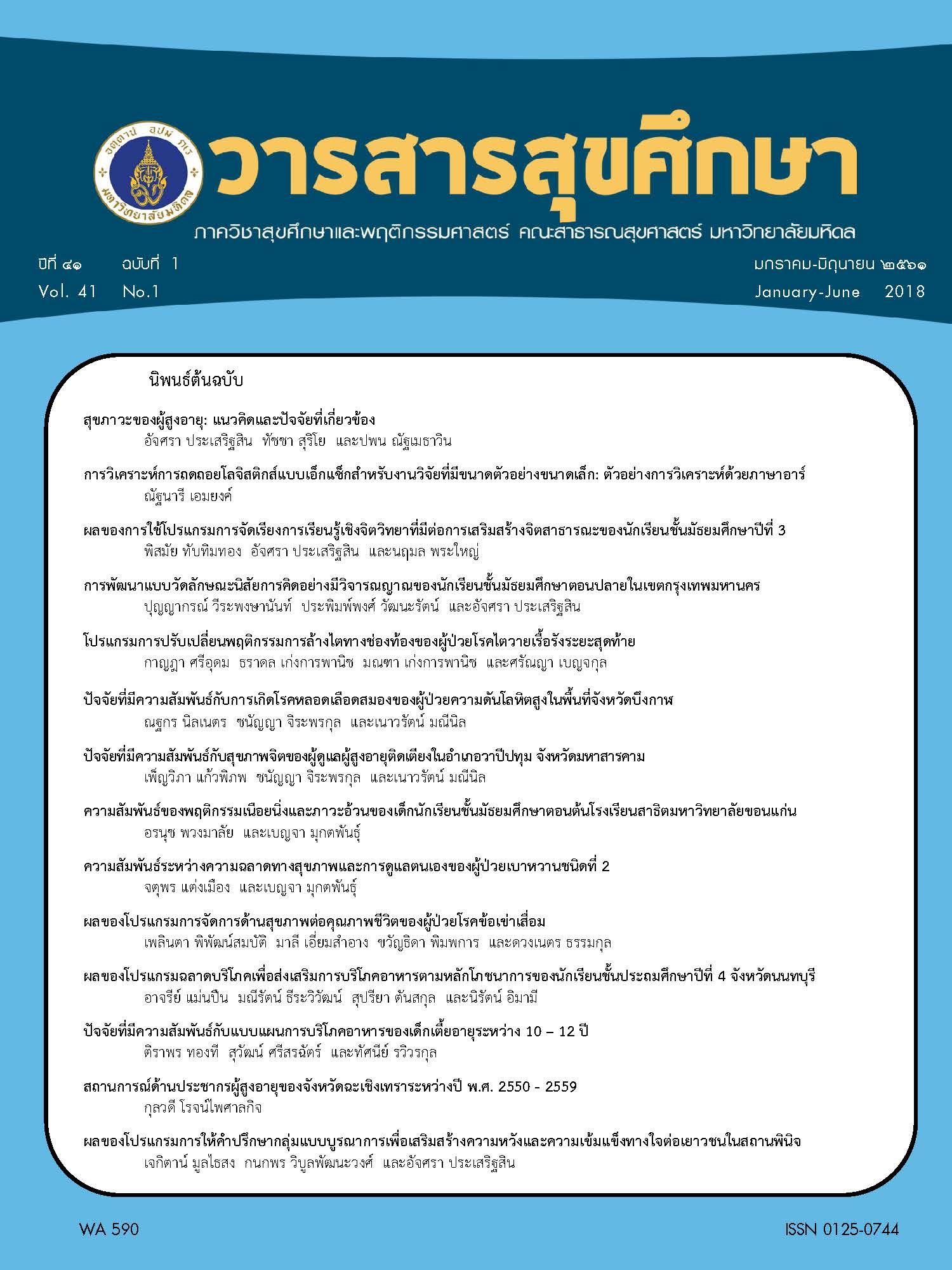Behavioral Modification Program for Continuous Peritoneal Dialysis of Patients with End-Stage Renal Disease
Keywords:
Continuous Peritoneal Dialysis, Perceived Self-Efficacy, End-Stage Renal DiseaseAbstract
Correct peritoneal dialysis by patients themselves can lower the chance to have peritonitis among patients with end-stage renal disease. This quasi-experimental research was aimed to study the effectiveness of the behavioral modification program for continuous peritoneal dialysis of patients with end-stage renal disease. Self-efficacy theory was applied for developing the program. The research was carried on 57 patients, 27 in the experimental group and 30 in the comparison group. The experimental group had participated in the program activities three times and the research was lasted for two months. The program composed of the activities aiming to enhance patients knowledge and perceived self-efficacy including demonstration and practices about hand-washing, exchanging the solution and caring for the catheter and the area around the catheter by themselves, experiences learning from the life models and exchange obstacles, recording behaviors, following-up, and setting short and long-term goals of self-care. Collecting data were done before and after the experimentation by using interviewing schedule. Data analysis was done by using statistics as percentage, mean, Chi-square test, Paired t-test and Independent t-test.
After the experimentation, the experimental group had significantly higher mean score than the comparison group on the following aspects: knowledge about continuous peritoneal dialysis (p=0.006), perceived self-efficacy to do peritoneal dialysis (p=0.034), outcome expectation (p=0.013), and continuous portioned dialysis behavior (p<0.001). Therefore, hospitals can apply the behavioral modification program for continuous peritoneal dialysis in order to prevent infection in the peritoneum and other complications.



